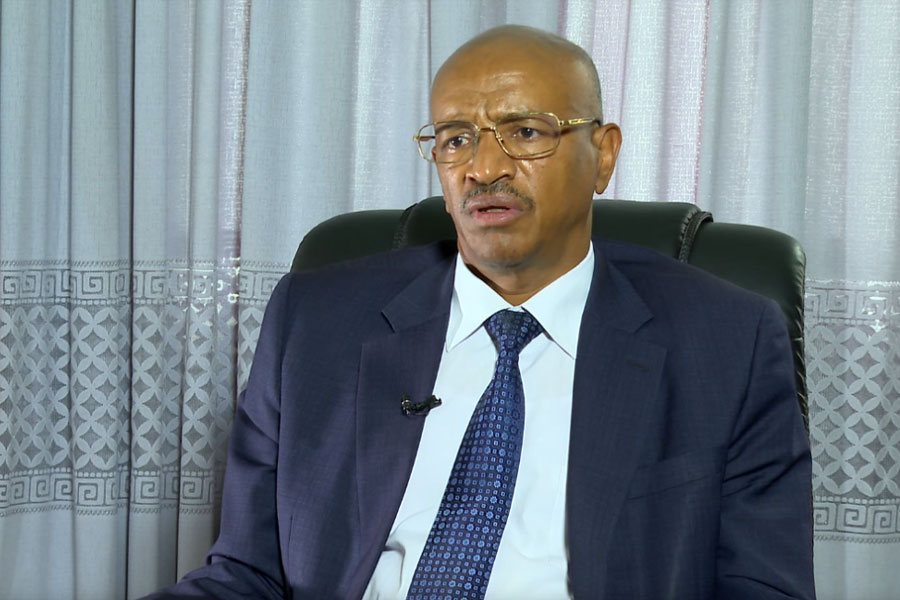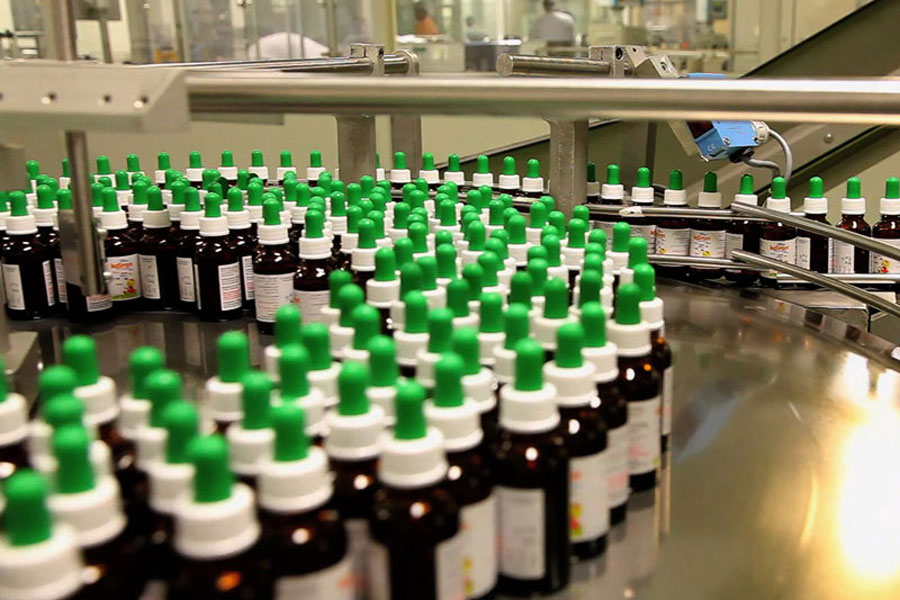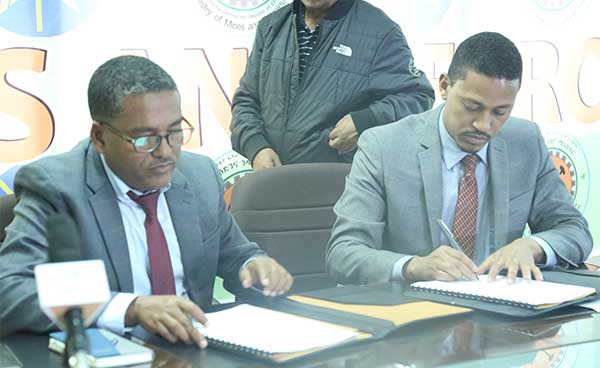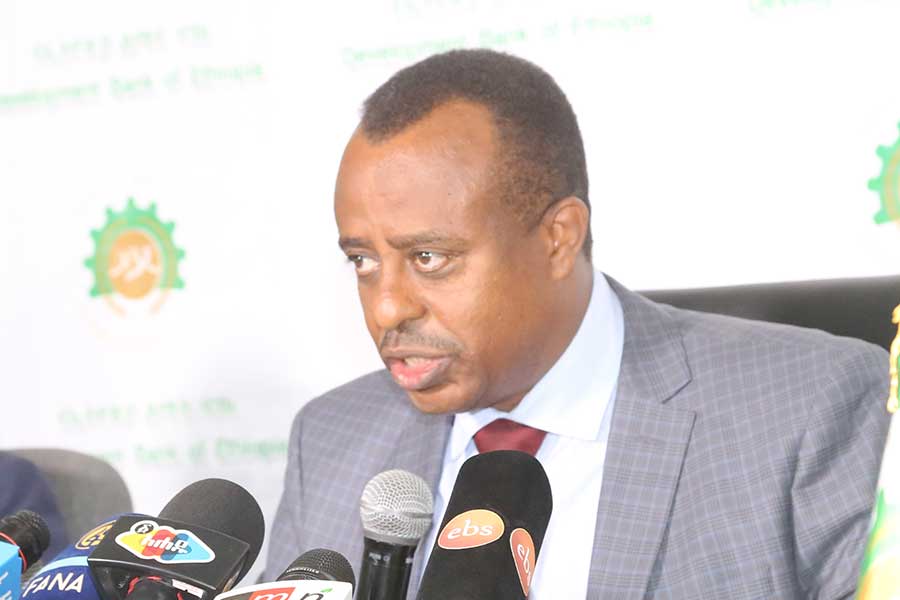
Radar | Sep 24,2022
Takele Uma has begun the long journey of animating an iron ore mining industry, hoping to reverse the downward spiral in metal products manufacturing brought on by raw material shortages.
The Minister of Mines has been contemplating a strategy developed by his experts for five years for import substitution. The Ministry had partnered with Meqelle University to conduct a study to determine whether manufacturing iron and steel domestically can be a viable industry.
A former Deputy Mayor of Addis Abeba, Takele was appointed to the mining portfolio in the cabinet two years ago. An engineer by training, Minister Takele has been working to replace imported coal with domestic production to cut import bills amounting to 300 million dollars annually.
He recently granted concessions to eight companies in coal extraction with a combined registered capital of six billion Birr.
He intends to find an international consultant to conduct a detailed feasibility study to establish an iron and steel plant. The Ministry’s tender was the second in a year when it was issued two weeks ago. The Ministry’s officials have yet to see the response they had expected.
“We’re hoping more companies will participate this time around,” said Guta Legesse (PhD), director general of the Ethiopian Mineral Development Institute.
The Institute is a federal agency tasked with studying and supporting metal factories. Its officials anticipate the feasibility study to be conducted in six areas before selecting a suitable location for installing iron and steel plants.
For the past year, experts from the Ethiopian Geological Survey have conducted preliminary studies. Their initial assessment indicates that there could be 600 million tones of iron ore reserves, disclosed Dejene Hailemariam, the director.
Previous studies have revealed three kinds of iron ore deposits: Magmatic iron in the West Wellega and Bale zones of the Oromia, lateritic iron in the Afar, and banded iron in the Amhara and Oromia regional states. However, attempts to mine iron ore over the last three decades have proved futile. Five companies with a combined investment of 90 million Br have done iron ore explorations in the past, including Sekota Mining Plc, Ezana Mining Development Company, and the Ethio Engineering Group, formerly the Metals & Engineering Corporation (MetEC).
Sekota Mining minted a deal with the federal government to mine iron ore with a pledge to invest one billion dollars after acquiring a concession in Wag Himra Zone, Amhara Regional State, a decade ago. Sinosteel Institute of China surveyed a 740Km area, discovering a 79 million tonne reserve with contained iron of 24 million tonnes.
Nonetheless, the venture remains on the drawing table.
Officials say addressing the foreign currency shortage for steel imports through exploiting natural resources is of national interest.
“The extraction of deposits is important to boost the metal industry,” said Guta.
The proposed plant will have an annual production capacity of 2.5 million tonnes of crude steel in the form of billet, bloom, and slabs. It can substitute over a quarter of the raw materials required by steel manufacturers. Officials estimate it will cost four billion dollars to set up the iron and steel plants.
Minyahl Teferi (PhD), a lecturer at Bahir Dar University’s Department of Geology, foresees the investment capital may go up depending on the quality of the iron ore from which metallic iron can be extracted. High-quality ore can be fed to iron-making furnaces directly. According to the expert, the process can be expanded in low-grade iron ore, making the project more expensive.
Minister Takele hopes to raise equity from domestic and foreign investors in a joint venture with the state.
Those in the metal industries welcome the initiative.
“It’s a promising endeavour,” says Solomon Mulugeta, president of the Ethiopian Association of Basic Metals & Engineering Industries, an industry lobby group representing 75 manufacturers.
There are 410 firms in the metal industry, creating employment opportunities for 126,000 people. Nonetheless, the industry’s contribution to the economy is nascent, using less than 25pc of its capacity.
“The foreign currency crunch to import raw materials is a major impediment,” said Solomon.
The metal manufacturing industry requires six million tonnes of billet annually, costing over 1.3 billion dollars. Billets account for half of the raw material in demand, while slab, bloom, and sponge iron constitute the balance. Over two dozen metal and steel factories have recently closed due to raw material shortages.
Formerly known as Kality Metal Products Factory, Tsehay Industries S.C is one of the oldest metal manufacturers that suspended operations in recent months.
The factory depends entirely on imported steel with an annual production capacity of 276,000tns.
“We’re unable to bring in the raw materials,” said Workineh Tesfaye, the CEO.
The pressing challenge to Minister Takele is to keep the remaining factories in business.
PUBLISHED ON
Aug 27,2022 [ VOL
23 , NO
1165]

Radar | Sep 24,2022

Verbatim | May 10,2025

Radar | Aug 05,2023

Fortune News | Oct 27,2024

Viewpoints | Mar 18,2023

Radar | Mar 23,2024

Fortune News | Sep 21,2019

Commentaries | Feb 09,2019

Fortune News | Aug 16,2020

Viewpoints | Apr 25,2020

Dec 22 , 2024 . By TIZITA SHEWAFERAW
Charged with transforming colossal state-owned enterprises into modern and competitiv...

Aug 18 , 2024 . By AKSAH ITALO
Although predictable Yonas Zerihun's job in the ride-hailing service is not immune to...

Jul 28 , 2024 . By TIZITA SHEWAFERAW
Unhabitual, perhaps too many, Samuel Gebreyohannes, 38, used to occasionally enjoy a couple of beers at breakfast. However, he recently swit...

Jul 13 , 2024 . By AKSAH ITALO
Investors who rely on tractors, trucks, and field vehicles for commuting, transporting commodities, and f...

Jul 5 , 2025
Six years ago, Ethiopia was the darling of international liberal commentators. A year...

Jun 28 , 2025
Meseret Damtie, the assertive auditor general, has never been shy about naming names...

Jun 21 , 2025
A well-worn adage says, “Budget is not destiny, but it is direction.” Examining t...

Jun 14 , 2025
Yet again, the Horn of Africa is bracing for trouble. A region already frayed by wars...